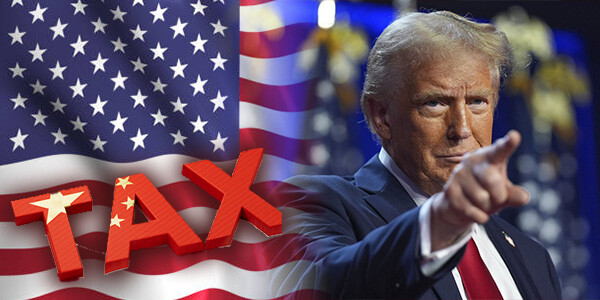
The specter of past trade conflicts looms large as the United States, under a potential second Trump administration, appears poised to escalate its economic confrontation with China. The parallels between the current US-China trade tensions and the 1980s US-Japan trade war are striking, fueling concerns that history may be repeating itself. Donald Trump’s long standing views on trade, and the use of tariffs as a weapon, has been a corner stone of his political views for decades.
Donald Trump's deep-seated distrust of foreign economic powers dates back to the 1980s, a period marked by Japan's ascendance as a global economic powerhouse. As a New York real estate developer, Trump witnessed firsthand the influx of Japanese capital into iconic American landmarks, notably the purchase of Rockefeller Center. This experience cemented his belief in what he perceived as "unfair trade practices" by Japan, a conviction that has remained a constant throughout his political career.
The 1980s witnessed a surge in Japanese exports, particularly in the automotive and electronics sectors, which significantly impacted American industries. This influx, coupled with a strong dollar policy pursued by the Reagan administration, exacerbated the trade imbalance between the two nations. The US trade deficit with Japan ballooned from $10 billion in 1980 to a staggering $46 billion by 1985, underscoring the severity of the economic friction.
In response to this growing imbalance, the Reagan administration orchestrated the historic Plaza Accord in 1985. This agreement, involving major economies like Japan and West Germany, aimed to depreciate the dollar by appreciating the yen and the Deutsche Mark. Subsequent measures included the 1986 US-Japan Semiconductor Agreement, which sought to regulate Japanese semiconductor prices, and the 1989 Super 301 provision of the US Trade Act, which threatened 100% tariffs on Japanese electronics and auto parts.
While the tariff threats were eventually withdrawn following Japan's commitment to market liberalization, the economic repercussions were profound. Japan's economy, already grappling with the yen's appreciation, plunged into a period of stagnation known as the "lost 30 years," marked by the bursting of its asset bubble. Conversely, the United States capitalized on its dominance in the burgeoning computer software industry, solidifying its position as the world's leading economic power.
The perceived "success" of the Reagan administration's aggressive trade tactics against Japan has emboldened those who advocate for a similar approach towards China. The parallels between the two scenarios are undeniable: a rising economic power challenging American industrial dominance, a widening trade deficit, and the potential use of tariffs and currency manipulation as retaliatory measures.
However, significant differences exist between the 1980s and the present day. Unlike Japan, which primarily exported finished goods to the United States, a substantial portion of China's exports consists of goods produced by American companies operating within China. This intricate web of supply chains complicates any attempt to impose tariffs without inflicting collateral damage on American businesses and consumers.
Moreover, China, having already experienced the Trump administration's trade tactics, appears to be adopting a strategy of strategic patience. The prevailing sentiment within Chinese policy circles seems to be that enduring the initial two years of a potential second Trump term could yield a more favorable outcome in the long run, particularly in the lead up to the next US midterm elections.
The potential for a renewed trade war between the United States and China carries significant implications for the global economy. The interconnectedness of modern supply chains means that any disruption in trade flows could have cascading effects on businesses and consumers worldwide. The lessons of the 1980s US-Japan trade war serve as a cautionary tale, highlighting the potential for economic conflict to escalate into prolonged periods of economic stagnation.
As the United States and China navigate their complex economic relationship, the specter of the past looms large. Whether the lessons of history will be heeded, or whether the world is destined to witness a repeat of past mistakes, remains to be seen. The stakes are high, and the consequences of miscalculation could be severe.
[Copyright (c) Global Economic Times. All Rights Reserved.]



























